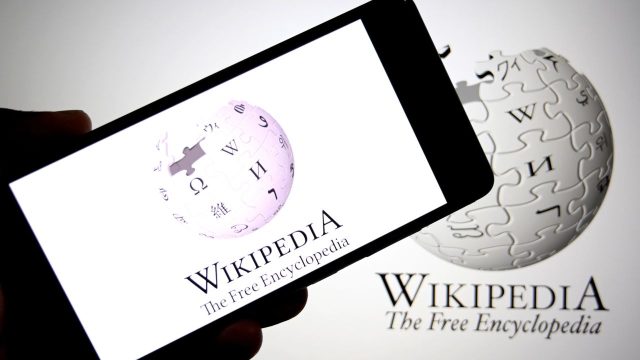
The speech wars have come for Wikipedia, said Tim Higgins in The Wall Street Journal. “For many, it is the modern-day encyclopedia—a site written and edited by volunteers that aims to offer, as Wikipedia co-founder Jimmy Wales once said, free access to ‘the sum of all human knowledge.’” But prominent voices on the Right, including Elon Musk and Tucker Carlson, talk as if it is “fueled by mainstream media lies” and “pumping out propaganda.” In theory, Wikipedia articles rely on published research and must “have a neutral point of view.” But exactly “how those policies are enforced” is a subject of fierce debate.
We didn’t have “source blacklists” when it started, said Larry Sanger in The Free Press. I co-launched Wikipedia with Wales in 2001 to be “a global smorgasbord of thinking,” reflecting “widely divergent politics.” But seven years ago, an anonymous editor proposed a list of so-called “reliable sources” that “blatantly favors left-leaning media,” with outlets like MSNBC classified as reliable while Fox News and the New York Post are largely barred as “generally unreliable.” Editors have chipped away at the neutrality policy by “casting aspersions” on viewpoints they don’t like. On a controversial subject, “it should be impossible to tell what position the article authors take.” That neutrality matters even more now “because Wikipedia is mined relentlessly by search engines and artificial intelligence,” said Sean Thomas in The Spectator. So when an article is slanted, “its bias is then amplified and propagated far beyond its own digital horizon.”
Yes, neutrality sounds good, but Wikipedia’s attackers are arguing in bad faith, said Stephen Harrison in Slate, and they really just want to “subordinate” reality to their own politics. Conservative commentators took particular umbrage with Wikipedia for “doing what an encyclopedia is supposed to do” after the killing of Charlie Kirk. It merely documented “what Kirk said.” But what MAGA supporters of Kirk wanted was that the page “should double as a memorial.” This isn’t about eliminating politics. It’s about “eroding public trust in Wikipedia” as an “independent repository of facts.”
Attacks on Wikipedia are nothing new, said Josh Dzieza in The Verge. “In Hong Kong, Russia, India, and elsewhere, government officials and state-aligned media have accused the site of ideological bias while online vigilantes harass editors.” But Wikipedia, self-funded and run by 40,000 volunteer editors, is resilient because people around the world see it as an essential source of verified facts; of major countries, only China has actually banned it. Over the years, Wikipedia has “developed an immune response to outside grievances.” An editor will often invite newcomers to “read the latest debate” and suggest edits if they’d like. “Occasionally, people stick around and learn to edit. More often, they get bored and leave.”
Wikipedia struggles to stay neutral as conservatives accuse the site of being left-leaning





